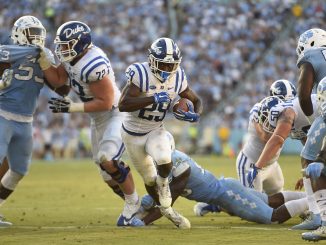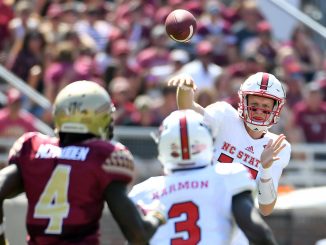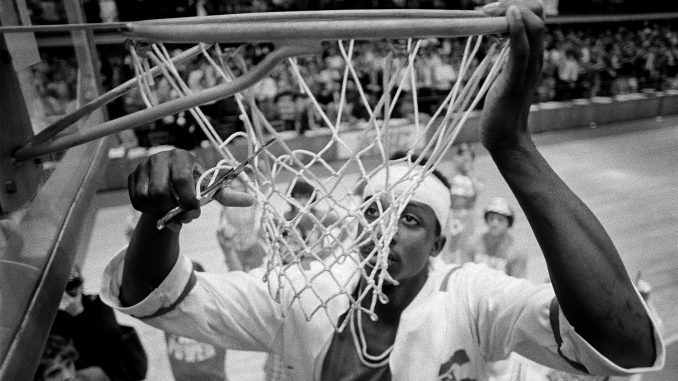
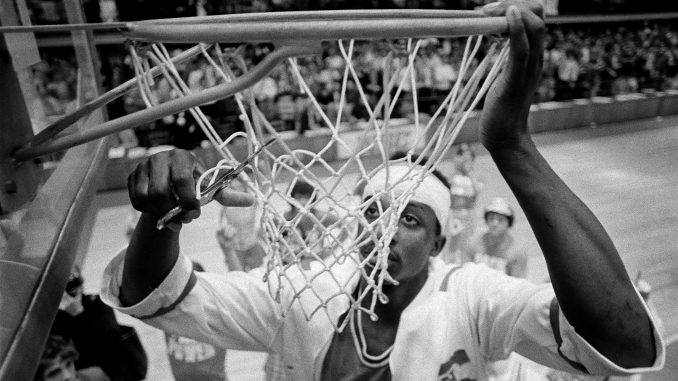
North State Journal’s 100 in 100 series will showcase the best athlete from each of North Carolina’s 100 counties. From Alamance to Yancey, each county will feature one athlete who stands above the rest. Some will be obvious choices, others controversial, but all of our choices are worthy of being recognized for their accomplishments — from the diamond and gridiron to racing ovals and the squared circle. You can see all the profiles as they’re unveiled here.

Cleveland County
David Thompson
There are 25 NC State basketball jerseys hanging from the rafters of PNC Arena. Of them, only one, the No. 44 belonging to David Thompson, has been retired. That, more than any statistic or accomplishment, underscores the greatness of a player generally accepted to be the best ever in the ACC.
Known as “Skywalker” because of his extraordinary leaping ability at a time when few played the game above the rim, Thompson came out of Crest High in Shelby as one of the most heralded recruits in state history. His recruitment, in fact, resulted in the Wolfpack being put on probation and banned from postseason play in 1973.
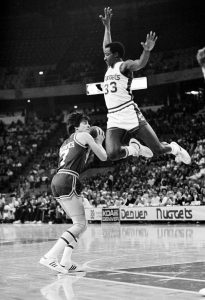
That year, Thompson led State to an undefeated 27-0 season. The following year, he and his teammates went 30-1, upset UCLA to end the Bruins’ run of seven straight national championships and won the first title in school history by beating Marquette in the NCAA Tournament final. Thompson’s best individual season was 1974-75 when he led the nation in scoring at 29.9 points per game.
Although the 6-foot-4 Thompson could score from anywhere on the court, his signature move was the alley-oop off a pass from point guard Monte Towe. Unlike players of today, Thompson was unable to finish the play with a dunk because the rules of the day prohibited it. The one dunk of his career came in his final home game. The basket was disallowed, with Thompson being assessed a technical foul.
Thompson was the first overall pick in both the NBA and ABA drafts, ultimately choosing the ABA’s Denver Nuggets over the Atlanta Hawks. He stayed with the team after the two leagues merged in 1976, earning four All-Star Game selections and winning an NBA scoring title in 1978 — edging out San Antonio’s George Gervin by scoring 73 points in the final game of the regular season.

